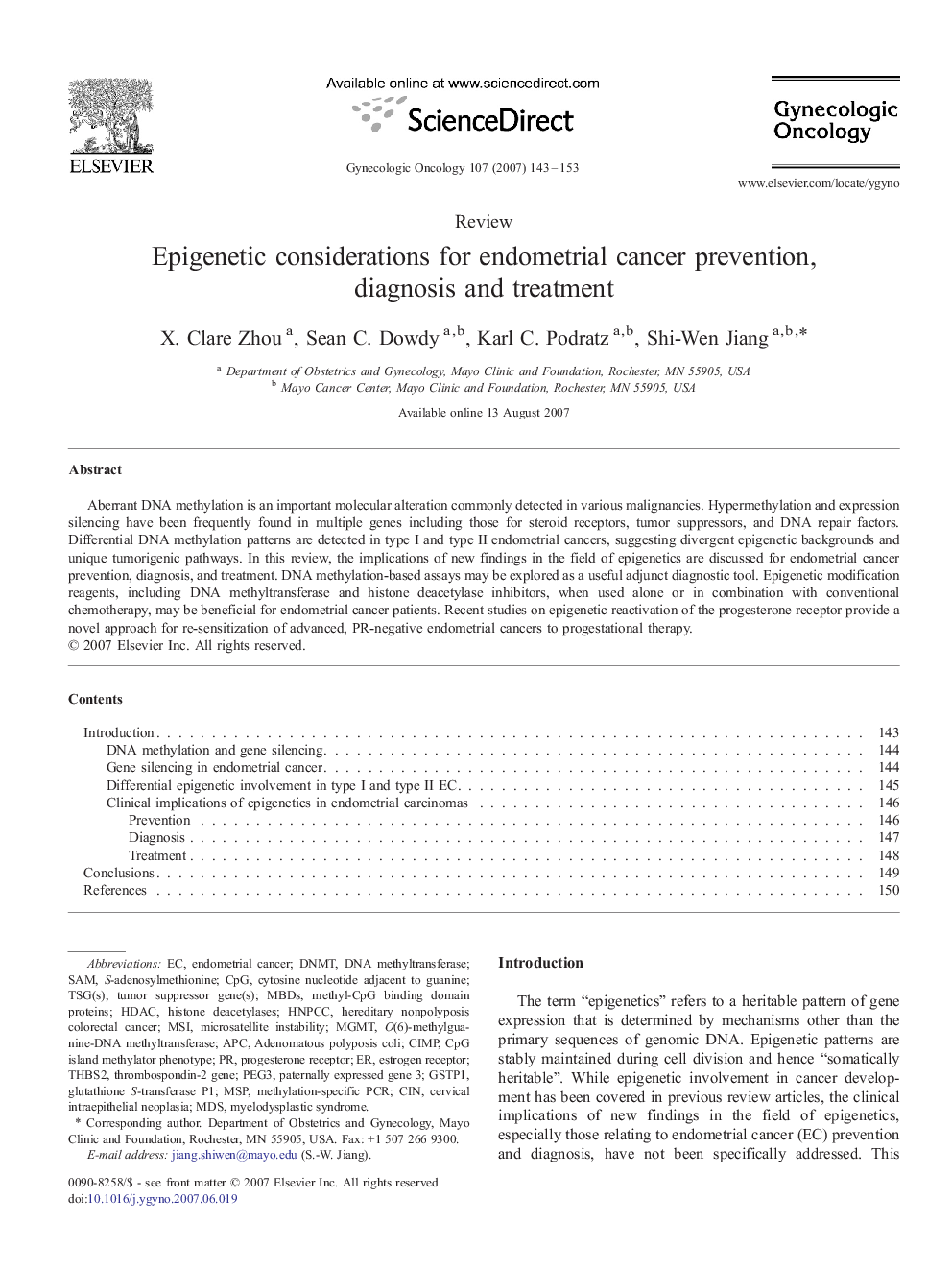| Article ID | Journal | Published Year | Pages | File Type |
|---|---|---|---|---|
| 3946278 | Gynecologic Oncology | 2007 | 11 Pages |
Aberrant DNA methylation is an important molecular alteration commonly detected in various malignancies. Hypermethylation and expression silencing have been frequently found in multiple genes including those for steroid receptors, tumor suppressors, and DNA repair factors. Differential DNA methylation patterns are detected in type I and type II endometrial cancers, suggesting divergent epigenetic backgrounds and unique tumorigenic pathways. In this review, the implications of new findings in the field of epigenetics are discussed for endometrial cancer prevention, diagnosis, and treatment. DNA methylation-based assays may be explored as a useful adjunct diagnostic tool. Epigenetic modification reagents, including DNA methyltransferase and histone deacetylase inhibitors, when used alone or in combination with conventional chemotherapy, may be beneficial for endometrial cancer patients. Recent studies on epigenetic reactivation of the progesterone receptor provide a novel approach for re-sensitization of advanced, PR-negative endometrial cancers to progestational therapy.
